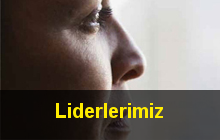
Arrangement to Turkısh tax treaties through the MLI
Abdulkadir Kahraman
Companies intending to grow abroad determine the location they will use as a base to enter the markets they target and manage their activities from there. Determinants as geography, historical/cultural ties with the country/place, labour market, political, commercial and economic relations take the first place in choosing the place of establishment of companies. Tax is also a factor, but it comes after all of them.
With a tax treaty, it’s aimed to prevent the collection of tax on the income of the investors of the states or double taxation and the taxation right is resolved by leaving the various revenues to one of the states of residence or source states where the income is acquired or otherwise sharing the tax revenues between the states.
So, have tax treaties been successful so far? Yes, but that was not enough. Because the appetite of countries to attract foreign direct investment and the tax incentives they offer for this purpose has even created harmful tax competition. All of these resulted in double non taxation or low taxation/non taxation of the income both in the source country and in the country where the beneficial owner is resident.
Under these circumstances, with the OECD's "Base Erosion and Profit Shifting" ("BEPS") Project, action was taken in international cooperation under the political leadership of the G-20 and the EU to combat for both double non- taxation, tax avoidance and tax evasion.
One of these actions is the Action 15 "Multilateral Instrument" (“the MLI”) for the amendment of more than 3000 "Double Tax Treaties" ("DTT") between the states in order to implement these rapidly and it was published on 24.11.2016. Subsequently, “the MLI" was signed by countries on 07.06.2017 in Paris with the participation of representatives of more than 70 countries (including Turkey).
Multilateral Convention includes two types of "prevention of tax avoidance standards": "Minimum standards" and "Optional standards". Contracting countries have to apply regulations that reflect the minimum standards.
The contract strategy of a country includes the processes of draft declaration at the first signature and elections / reservations and final declaration and elections / reservations. Countries have the right to make reservations on articles other than the minimum standards, and they have the right to apply or not to apply the articles they have made with reservations.
Turkey has submitted the MLI to the Parliamentary Planning and Budget Commission on 03.06.2020 with the title of The Draft Law for the Endorsement of Implementing the Multilateral Convention Regarding the Implementation of the Measures on Tax Treaties for the Prevention of Base Erosion and Profit Shifting. When the first "statements and reservations" of our country regarding the contract were examined, it has been understood that Turkey’s strategy was adapting "minimum standards" but it wants to be beyond the "minimum standards" by changing its strategy with the Draft Law at the Turkish Grand National Assembly.
The effective date for Turkey regarding the Convention is the first day of the month following the end of the three-month period after the notifications are submitted to the OECD; the date of implementation of the contract provisions may differ for taxes deducted at source and other types of taxes.
Turkey's preference on Article 5 of the MLI should be revised in the legislative process. If the draft passes into law in its current form, it will weaken the competitiveness of Turkish companies and therefore necessary amendments should urgently be made in the Corporate Tax Law the same as similar practices in other countries, including "participation exemption from foreign participations", "credit method with regard to the taxes imposed by the foreign participation earnings in previous countries". This is the only way to offset the extent of this adjustment given to tax treaties.
This is the summary of the article published in the Ekonomist magazine’s issue 33, dated 13.12.2020.
Explanations in this article reflect the writer's personal view on the matter. EY and/or Kuzey YMM ve Bağımsız Denetim A.Ş. disclaim any responsibility in respect of the information and explanations in the article. Please be advised to first receive professional assistance from the related experts before initiating an application regarding a specific matter, since the legislation is changed frequently and is open to different interpretations










 Başa Dön
Başa Dön